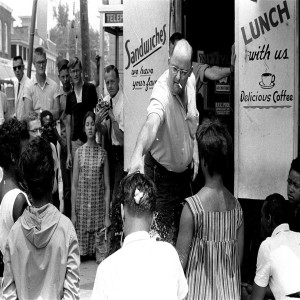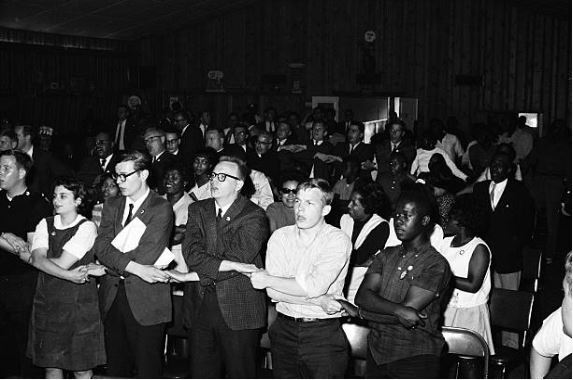
563
Downloads
7
Episodes
The podcast was created by Dion D. Banks and Kisha Petticolas, Cofounders of the Eastern Shore Network for Change. This collection of interviews was recorded and produced by ESNC board member Verlisha Taylor as a part of an event called “Reflections on Pine,” a series of events held in July 2017 to commemorate the civil unrest in Cambridge, Maryland, during the “Long Hot Summer of 1967”. These interviews focus on Cambridge during a time that, for many people, had been ignored. The first six episodes feature stories from Clarabell Tilghman, Barbara Pinder, William “Pee Wee” Jackson, Gloria Richardson, Fred Jackson, and Mayor Victoria Jackson-Stanley.“We will continue to challenge the perceptions of our community by reclaiming our narrative and sharing our truth. Our story of hope, faith, and change; a story of world-class leadership and a resilient community who decided not to accept the status quo as an option,” said Banks. “We are very proud of these first six episodes and hope more people will decide to share their stories with us. We encourage you to listen and connect with our interviewees as they share first-hand life experiences during civil unrest,” said Petticolas. ESNC’s mission is to raise awareness of issues in Dorchester County and creatively work with the community to inform, educate, and foster change, leading to social and economic empowerment. For more information about the organization, visit our website, http://www.esnccambridgemd.com.
Episodes

Sunday Sep 30, 2018
I’m Gonna Eat at the White Man’s Table
Sunday Sep 30, 2018
Sunday Sep 30, 2018
In this episode entitled “I’m Gonna Eat at the White Man’s Table,” we sat down with Clarabell Tilghman, who remembers relocating to Cambridge, Maryland as a small child from Georgia. She shares her memories of marching for Civil Rights on the front line.
Before 1964 when Congress enacted a law banning race discrimination in public accommodations, Title II of the Civil Rights Act of 1964, Cambridge, Maryland, was segregated, as was the rest of the nation. Segregation kept black and whites legally separated at places such as hotels, restaurants, gas stations, and places of entertainment. Segregation was based on race, color, or national origin.
We invite you to join us and listen as Ms. Tilghman shares a fearless story of faith and hope with us.

3 years ago
Thank you so much for this interview. Clara is my grandmother. Hearing her voice and her story brings both joy and alertness of what was not so long ago still happening in places today. Blessings